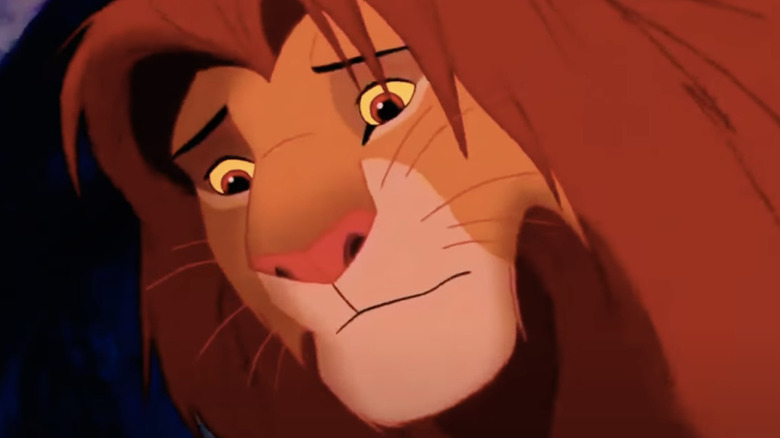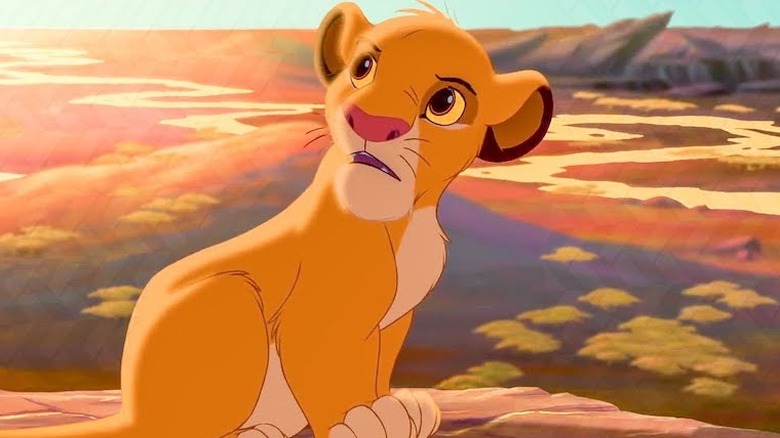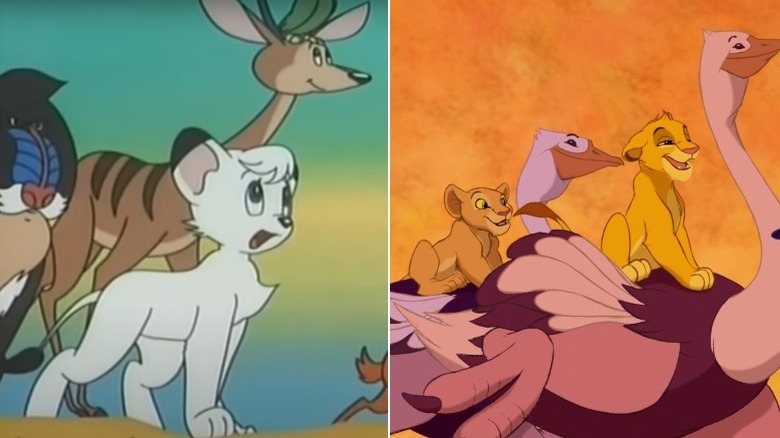The Lion King Controversy Disney Probably Doesn't Want You To Remember
From 1989 to roughly 1999, Walt Disney Feature Animation enjoyed a renewed and acclaimed success known as the "Disney Renaissance." The 1970s and most of the 1980s saw one failed Disney movie after the next, but 1989's "The Little Mermaid" managed to reestablish the magically animated filmmaking the company had been known for throughout the 20th century. By the time "The Lion King" arrived in 1994, a new generation of audiences discovered what made the studio such a force to be reckoned with in family animation.
"The Lion King" is a film that combines spectacle, humor, musicality, and superb filmmaking inside a poignant coming-of-age story. Even after a quarter of a century that includes a well-received live-action remake in 2019, this is a Disney animated selection that stands alongside perennial classics like the 1940 film "Pinocchio" and 1942's "Bambi."
"The Lion King" was a labor of love for Disney animators in the early 1990s, but it also came with many risks and challenges, per The New York Times. The film was understood to be one of the first Disney animated features without adaptive source material, but its inspirations drew a controversy the studio would likely prefer everyone to forget.
The Lion King intellectual property controversy explained
When artists set out to create their vision, there is a fine line to walk when it comes to executing their vision and pulling from their influences. Sometimes, those influences can speak too loudly whether the artist is aware of this or not. Disney's original "The Lion King" from 1994 is a dazzling work of art, but underneath the majesty of its animated brilliance, there is also an untold truth.
Since shortly after its release, "The Lion King" had been mired in an intellectual property controversy with accusations of plagiarism (via The Seattle Times). The Japanese animation aesthetic known as manga has helped to define the limitless potential for artistic imagination in animation since at least the 1960s. One of the style's earliest pioneers, an artist named Osamu Tezuka and nicknamed the "father of manga," created an animated manga known as "Jungle Emperor Leo" that was later made into a series and subsequently licensed to American network NBC as "Kimba the White Lion."
Not only does the series feature animated animals similar to the same characters drawn in "The Lion King," but the story surrounding an animal hierarchy and the themes of life, death, and the cyclical regeneration of nature are also all similar to the Disney film. The confusing details behind these similarities are vast since the company always bought and licensed source material for their films in the past. But Disney's 1994 position was that the film was an original story.
The similarities between Kimba the White Lion and Disney's The Lion King
In "Kimba the White Lion," Kimba is nearly identical to Simba in both the name and story arc. Kimba is the heir to his father's guardian role over the animal kingdom, and once his father is killed, Kimba becomes the hero of the story. This is nearly an exact replica of Simba and Mufasa in "The Lion King." But perhaps the most striking amount of similarities lies in the animation sequences throughout "The Lion King," in which some are indistinguishable from the series.
In a 1994 interview with the Los Angeles Times on the reported similarities, "The Lion King" co-director Rob Minkoff stated, "frankly, I'm not familiar with (the TV series)," with a further statement by Disney's promotional department that the story "originated in the story department of Disney Feature Animation more than four years ago." Since Osamu Tezuka passed away in 1989 shortly before Disney's conception of "The Lion King," others have spoken on the controversy in his place.
Tezuka's son Macoto Tezka, also an animator, spoke to The Hollywood Reporter in 2019 on the "Lion King" vs. "Kimba" controversy. When asked about the similarities, Tezka replied, "My father was also inspired by 'Bambi' when he wrote 'Kimba the White Lion,' so some of the original ideas came from Disney."
Inspiration can infiltrate the work of an artist, as evidenced by Osamu Tezuka's inspiration from "Bambi." However, Disney has never acknowledged nor confirmed borrowing from "Kimba the White Lion."


